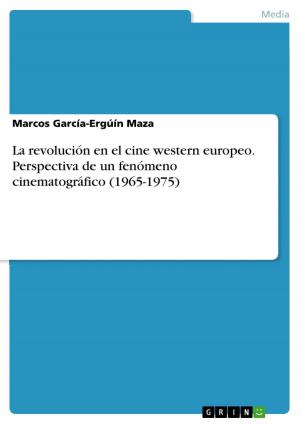The Employee Talk
Guidelines and Recommendations on how to successfully conduct a critical discussion with a team member
Business & Finance, Human Resources & Personnel Management| Author: | Julia Wimmers | ISBN: | 9783640595464 |
| Publisher: | GRIN Publishing | Publication: | April 19, 2010 |
| Imprint: | GRIN Publishing | Language: | English |
| Author: | Julia Wimmers |
| ISBN: | 9783640595464 |
| Publisher: | GRIN Publishing |
| Publication: | April 19, 2010 |
| Imprint: | GRIN Publishing |
| Language: | English |
Research Paper (undergraduate) from the year 2010 in the subject Business economics - Personnel and Organisation, grade: 2,0, University of applied sciences, Munich (MBA ), course: Soft Skills and Leadership Management Core Module, language: English, abstract: The 'Employee Talk' forms the object of investigation where the author approaches the object from general to detail. Different kinds of occasions for, and the six most common types of employee talks: appraisal interview, delegation interview, conflict-solving interview, promotion interview and target agreement interview are superficially described. A very intensive illustration and breakdown of useful communication soft skills is made, with a special emphasis on 'relevant to-dos' and 'nice-to-knows' for critical discussions and interviews: 'Active Listening' is more than eye contact but also comprises demanding communication techniques like paraphrasing or reflecting. In order to explain the benefits of 'Questioning' the questioning funnel is presented and for the ability of 'Comprehensible Communicating' the famous four-dimensional model from Langer and Schulz von Thun is described. The stages of an employee talk preparation (divided up into three prep periods), introduction, main part, summary and termination and review are explicitly demonstrated and once again focusing on providing 'key messages' or mnemonics on how to demean oneself as a manager or disciplinarian to successfully conduct critical discussions or interviews. The results section summarizes the main achievements and statements for mutual, constructive and target orientated employee interviews and highlights a ranking of 'six communication principles especially meaningful for critical interviews'.
Research Paper (undergraduate) from the year 2010 in the subject Business economics - Personnel and Organisation, grade: 2,0, University of applied sciences, Munich (MBA ), course: Soft Skills and Leadership Management Core Module, language: English, abstract: The 'Employee Talk' forms the object of investigation where the author approaches the object from general to detail. Different kinds of occasions for, and the six most common types of employee talks: appraisal interview, delegation interview, conflict-solving interview, promotion interview and target agreement interview are superficially described. A very intensive illustration and breakdown of useful communication soft skills is made, with a special emphasis on 'relevant to-dos' and 'nice-to-knows' for critical discussions and interviews: 'Active Listening' is more than eye contact but also comprises demanding communication techniques like paraphrasing or reflecting. In order to explain the benefits of 'Questioning' the questioning funnel is presented and for the ability of 'Comprehensible Communicating' the famous four-dimensional model from Langer and Schulz von Thun is described. The stages of an employee talk preparation (divided up into three prep periods), introduction, main part, summary and termination and review are explicitly demonstrated and once again focusing on providing 'key messages' or mnemonics on how to demean oneself as a manager or disciplinarian to successfully conduct critical discussions or interviews. The results section summarizes the main achievements and statements for mutual, constructive and target orientated employee interviews and highlights a ranking of 'six communication principles especially meaningful for critical interviews'.















